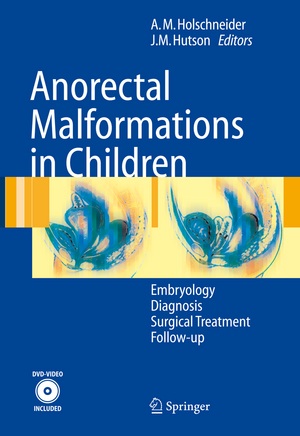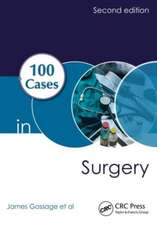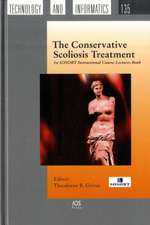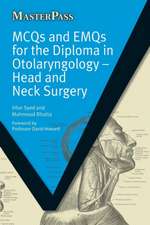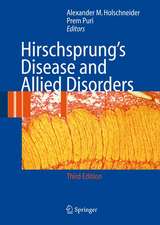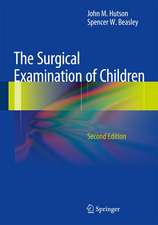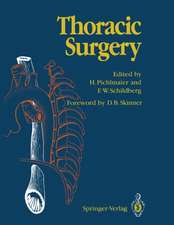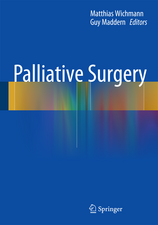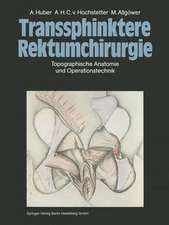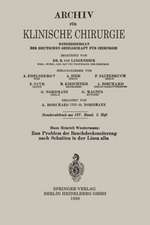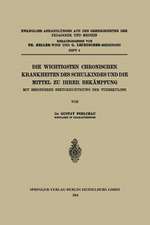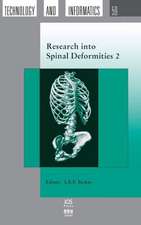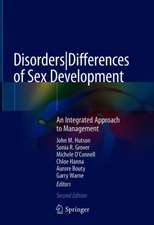Anorectal Malformations in Children: Embryology, Diagnosis, Surgical Treatment, Follow-up
Editat de Alexander Matthias Holschneider, John M. Hutsonen Limba Engleză Hardback – 22 sep 2006
| Toate formatele și edițiile | Preț | Express |
|---|---|---|
| Paperback (1) | 1326.19 lei 38-44 zile | |
| Springer Berlin, Heidelberg – 23 aug 2016 | 1326.19 lei 38-44 zile | |
| Hardback (1) | 1815.36 lei 38-44 zile | |
| Springer Berlin, Heidelberg – 22 sep 2006 | 1815.36 lei 38-44 zile |
Preț: 1815.36 lei
Preț vechi: 1910.91 lei
-5% Nou
Puncte Express: 2723
Preț estimativ în valută:
347.36€ • 363.65$ • 287.42£
347.36€ • 363.65$ • 287.42£
Carte tipărită la comandă
Livrare economică 02-08 aprilie
Preluare comenzi: 021 569.72.76
Specificații
ISBN-13: 9783540317500
ISBN-10: 3540317503
Pagini: 500
Ilustrații: XVIII, 480 p.
Dimensiuni: 193 x 270 x 32 mm
Greutate: 1.25 kg
Ediția:2006
Editura: Springer Berlin, Heidelberg
Colecția Springer
Locul publicării:Berlin, Heidelberg, Germany
ISBN-10: 3540317503
Pagini: 500
Ilustrații: XVIII, 480 p.
Dimensiuni: 193 x 270 x 32 mm
Greutate: 1.25 kg
Ediția:2006
Editura: Springer Berlin, Heidelberg
Colecția Springer
Locul publicării:Berlin, Heidelberg, Germany
Public țintă
Academic/professional/technical: Research and professionalDescriere
Anorectal Malformations in Children represents an international consensus in understanding and treating anorectal malformations. Interesting new topics include tethered cord, vaginal reconstruction, continent catherizable channels, and the impact on family studies by parents' organizations. The book not only carries on from the three previous editions by Douglas Stephens and Durham Smith (1963, 1971, and 1988) but assembles many new aspects in the broad field of anorectal and genitourinary malformations. Special attention is given to the new surgical techniques posterior sagittal anorectal plasty (PSARP), urogenital sinue advancement, and laparoscopy. The results of an international workshop of 26 international authorities on congenital malformations of the organs of the pelvis and perineum are presented. The new classification proposed at the Krickenberg Conference will enable future studies comparing the types and the results of treatment of anorectal malformations. The book is an invaluable reference for all medical authorities with a special interest in anorectal and genitourinary malformations
Cuprins
General Aspects: ARM - an Historial Overview.- Genetics of Anorectal Malformations.- Pathogenesis and Epidemiology of Anorectal Malformations and the Caudal Regression Sydrome.- The Embryology of Anorectal Malformations.- Recent Advances Concerning the Normal and Abnormal Anatomy of the Anus and Rectum.- Photographic Album of Anorectal Malformations and Sphincter Muscles.- Anatomy and Function of the Normal Rectum with Special Regard to Surgery and Function.- Clinical Aspects: Incidence, Frequency of Different Types and Classification of Anorectal Malformations.- The Clinical Features and Diagnostic Guidelines for Identification of Anorectal Malformations.- Persistent Cloaca - Clinical Aspects.- Congenital Pouch Colon.- Rectal Atresia and Rectal Ectasis.- Rectal Duplication.- Vesicointestinal Fissure.- Rare/Regional Variants.- Non-urologic Anomalies associated with Anorectal Malformations.- Urological Problems in Children with Anorectal Malformations.- Tethered Spinal Cord in Patients with Anorectal Malformations.- Initial Management: Management in the Newborn Period.- Operative Management of Anomalies in Males.- Operative Management in Females.- Treatment of Cloacas.- Laparoscopic Assisted Anorectal Pull-Through.- Complications after the Treatment of Anorectal Malformations and Redo-operations.- Results and Aftercare: Postoperative Pathophysiology of Chronic Constipation and Stool Incontinence.- Postoperative Electromanometric and Myographic and Anal Endosonographic Evaluations.- Scoring of Postoperative Results.- Results Following the Treatment of Anorectal Malformations.- Treatment of Fecal Incontinence.- Dietary Prevention and Constipation.- Operations to improve Continence after Previous Surgery.- Treatment of Chronic Constipation and Resection of the Inert Rectosigmoid.- Postoperative Treatment: Multidisciplinary Behavioural Treatment: The Nijmegen Experience.- Continent Catherizable Channels (CCC).- Vaginal Reconstruction of Congenital and Acquired Abnormalities.- Adult Sexual Function after Anorectal Malformation Repair.- ARM: After Care and Impact from the Perspective of the Family.- Index.
Textul de pe ultima copertă
Anorectal Malformations in Children represents an international consensus in understanding and treating anorectal malformations. Interesting new topics include tethered cord, vaginal reconstruction, continent catherizable channels, and the impact on family studies by parents' organizations. The book not only carries on from the three previous editions by Douglas Stephens and Durham Smith (1963, 1971, and 1988) but assembles many new aspects in the broad field of anorectal and genitourinary malformations. Special attention is given to the new surgical techniques posterior sagittal anorectal plasty (PSARP), urogenital sinue advancement, and laparoscopy. The results of an international workshop of 26 international authorities on congenital malformations of the organs of the pelvis and perineum are presented. The new classification proposed at the Krickenberg Conference will enable future studies comparing the types and the results of treatment of anorectal malformations. The book is an invaluable reference for all medical authorities with a special interest in anorectal and genitourinary malformations.
Caracteristici
International update on the science and surgery of malformations of the rectum and anus
New international classification for anorectal malformations with rules on postoperative follow-up and management
New international classification for anorectal malformations with rules on postoperative follow-up and management
